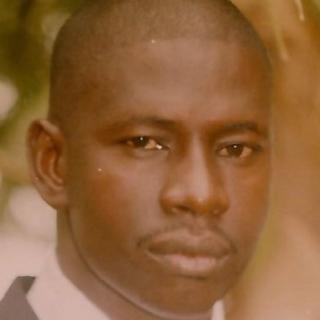Hamadoun Amadou Daou was born on 1 January 1977 in the town of Niafunké, in the Timbuktu Region of Mali. He joined the ICRC in September 2013 as a truck driver, working out of the Mopti office, in the central part of the country. Hamadoun, who was married with four children, was calm, courteous and committed to his work and his colleagues, who held him in high esteem. He had a strong sense of team spirit and always made himself available whenever there was an operational emergency.
Hamadoun worked at the ICRC during what was a turbulent period in his country’s recent history. An experienced driver, he was constantly on the move, transporting items destined to meet the needs of countless numbers of people affected by the violent conflict. In February and March 2015, he made four back-to-back trips: first, to make a delivery from Sévaré (near Mopti) to Timbuktu, starting on 20 February; second, to move computer equipment from Timbuktu to Bamako, starting on 25 February; third, to transfer equipment from Sévaré to Gao and Kidal, starting on 10 March; and fourth, to transport medical products to Gao hospital, starting on 26 March.
It was on the fourth journey that disaster struck. On 30 March, around 45 kilometres from Gao, Hamadoun and his co-driver were forced off the road by around a dozen armed men on motorbikes. The attackers made the two drivers exit their vehicle, which was clearly marked with the red cross emblem, and then shot them on the spot. Hamadoun, who was 38, died immediately, while his colleague, a member of the Mali Red Cross, was left critically injured.
Reacting to news of Hamadoun’s killing, Yasmine Praz Dessimoz, the ICRC’s head of operations for North and West Africa, said: “His death is not only a tragedy for his family and for the ICRC, it will affect the life and well-being of tens of thousands of people.”
Hamadoun played a vital role in the ICRC’s work in Mali, ensuring much needed aid continued to reach communities affected by conflict. His shocking murder was a reminder of the brutality of the ongoing conflict – and yet another example of the senseless violence aimed at humanitarian workers, whose sole purpose is to alleviate suffering.
